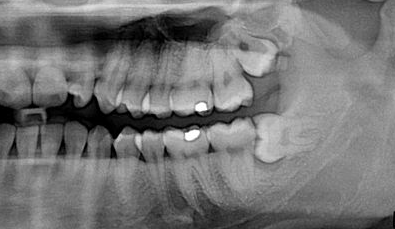Wisdom Teeth Removal in Chico, CA
Wisdom teeth are the third and final set of molars, typically emerging in the late teens or early twenties. While some wisdom teeth erupt without issue, many do not have enough room to come in properly. When wisdom teeth become misaligned or impacted, they can lead to pain, infection, crowding, and damage to surrounding teeth.
At our Chico dental practice, we provide safe, comfortable wisdom teeth removal with amenities designed to keep you relaxed and confident throughout the process. Contact our office today to learn more and schedule with us!
Why Wisdom Teeth Often Need to Be Removed
Wisdom teeth frequently become problematic because there is limited space in the jaw. They may erupt at an angle, grow sideways, or fail to fully emerge. In these situations, teeth can press against neighboring molars or become trapped beneath the gumline.
Impacted wisdom teeth create openings where bacteria can enter, increasing the risk of infection. Symptoms may include pain, swelling, jaw stiffness, bad breath, and difficulty opening the mouth. Even when no symptoms are present, X-rays during routine dental exams can reveal issues that make removal the ideal choice.
Signs Your Wisdom Teeth May Be Erupting
Pain at the back of the mouth is one of the most common indicators, but other symptoms may include sore or bleeding gums, jaw swelling, stiffness, persistent bad breath, or difficulty chewing. In some cases, patients experience no symptoms at all, which is why regular dental exams and imaging are essential for early detection.
If you are experiencing sudden or severe pain, we encourage you to schedule an emergency appointment for prompt care.
What to Expect During Wisdom Teeth Removal
Wisdom teeth removal is a common and fairly routine procedure. Before treatment begins, the area is numbed with local anesthesia to prevent discomfort. For patients who feel anxious or require additional relaxation, we offer oral conscious sedation to make your experience more comfortable and relaxing.
Simple extractions are performed when teeth are fully erupted, while surgical extractions are needed for impacted teeth. Our team will explain the procedure in advance and answer any questions you may have.
Recovery After Wisdom Teeth Extraction
Recovery time varies depending on how many teeth are removed and whether they were impacted. Most patients are advised to rest for at least three days before returning to work or school. Mild swelling, soreness, and limited chewing are normal and can last up to a week or longer. Following post-operative instructions carefully helps ensure a smooth recovery and reduces the risk of complications.
If you have questions, concerns, or believe your wisdom teeth may need attention, we invite you to contact our office for prompt assistance.
Frequently Asked Questions
What can I eat after my extraction?
Soft foods such as yogurt, mashed potatoes, eggs, and applesauce are recommended during healing.
How do I prevent dry socket?
Avoid straws, smoking, and vigorous rinsing, and follow all post-op instructions carefully.
Are sedation options available?
Yes, we offer sedation dentistry for patient comfort.
How much does wisdom teeth removal cost?
Costs vary based on the number of teeth removed and complexity. Our team is happy to review options and benefits in advance.
How do I schedule an appointment?
You can contact our office directly or visit our contact page to request an appointment.


